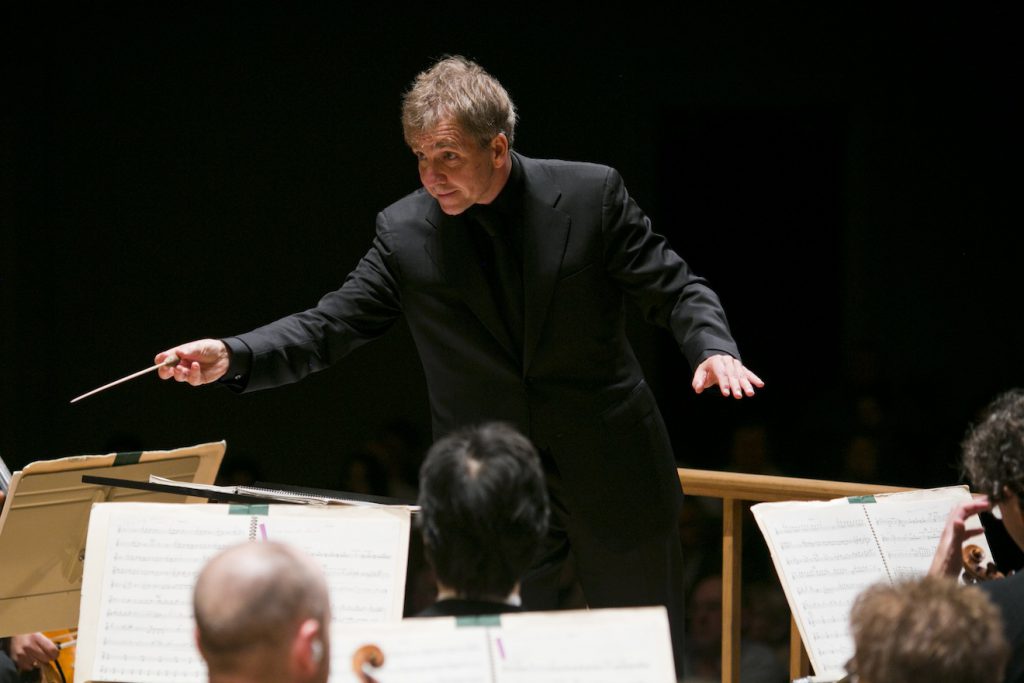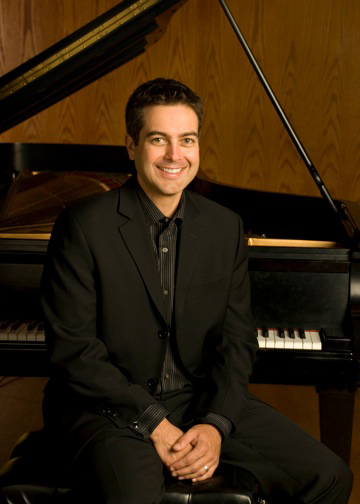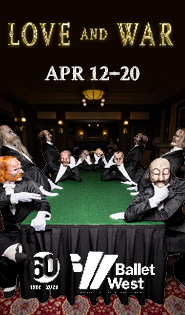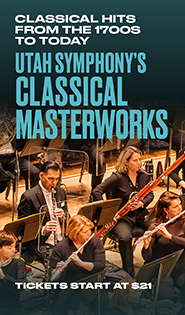Utah Symphony opens season with dynamic Beethoven, quirky Norman

Thierry Fischer conducted the Utah Symphony in music of Beethoven and Andrew Norman Friday night at Abravanel Hall. File photo: Dominick Reuter
It’s a decades-old tradition that the Utah Symphony open its season with a work by Beethoven. And music director Thierry Fischer kept that tradition alive last night by programming the composer’s Ninth Symphony, a work that he and the orchestra have played numerous times over the years.
Fischer has a penchant for brisk tempos with Beethoven, which sometimes works and sometimes leaves the listener wondering why so fast?
On Friday night, Fischer’s tempo choices worked wonderfully. In the opening movement, Fischer, conducting without a score, created ample drama with his spirited tempo and some nicely crafted crescendoes and climaxes.
The forceful, dynamic qualities carried over into the ensuing movement. The Scherzo was at times a bit frenzied but Fischer never lost control over the proceedings. As in the first movement, he coaxed crisp, finely enunciated playing from his ensemble that was well articulated and cleanly defined.
Fischer’s reading of the Adagio was thoughtful and nuanced. His tempo allowed for fluid, expressive lines, and the strings, especially, played with sensitive, delicately crafted lyricism.
The opening of the final movement proved bold and decisive, with Fischer bring cohesion to the long movement’s contrasting sections. For the “Ode to Joy” chorale finale, the orchestra was joined by the Utah Symphony Chorus, the University of Utah Chamber Choir and the University of Utah A Cappella Choir, all under the leadership of chorus master Barlow Bradford.
Even though the orchestra had a full complement of players, the massed choral ensemble occasionally overpowered them. The assembled choirs could have easily been reduced by a third without damaging the performance; that would have brought a finer balance between choirs and orchestra. Notwithstanding, the choral singers gave a marvelous performance that allowed them to display their vocal talents to the fullest.
The same held true for the soloists: soprano Joélle Harvey; mezzo-soprano and University of Utah artist-in-residence Kirstin Chávez; tenor Issachah Savage; and bass-baritone Patrick Carfizzi. The quartet was well matched vocally; and Carfizzi and Savage gave excellent renditions of their solos. Savage, in particular, was exceptional. His powerful tenor soared over the chorus hitting his high notes effortlessly.
Opening the concert was Andrew Norman’s Suspend, for piano and orchestra, with the Utah Symphony’s principal keyboardist, Jason Hardink, at the piano.

Jason Hardink
Norman, who is the Utah Symphony’s artist-in-association through 2020, wrote the work for the venerable pianist Emanuel Ax, who premiered it with the Los Angeles Philharmonic under Gustavo Dudamel in 2014. Since then it has been performed several times, and last night marked its Utah premiere.
Per Ax’s request, there is a strong connection to Brahms in this piece. Norman bases the 20-minute work on two motives: F-A-E (frei aber einsam, “free, but lonely”) and F-A-F (frei aber froh, “free, but happy”).
Both are taken quite literally. The improvisatory work opens with a bit of theatricality, as the pianist’s hands hover over the keyboard as if deciding what to play. When the pianist finally starts, he touches the keys lightly so no sound is created. Gradually, the pianist touches the keys harder and eventually one hears sounds emanating from the piano.
Suspend starts out almost as a reverie, slowly building to a strong climax in which the pianist and orchestra play freely, with only minimal guidelines in the score, before finally returning to the opening solo piano solitude.
Both Hardink, who specializes in contemporary music, and the orchestra provided a memorable performance, playing with feeling and finely honed expression. Fischer skillfully kept everyone together, especially in the somewhat chaotic free-for-all climax.
The program will be repeated 7:30 p.m. Saturday in Abravanel Hall. utahsymphony.org.
Edward Reichel has been covering classical music in Utah for over 20 years, first for the Deseret News then for his website, Reichel Recommends. He has also contributed reviews and features for Chamber Music Magazine, OperaWire, Opera Magazine and Salt Lake Magazine. He has a Ph.D. in music from the University of California at Santa Barbara.

